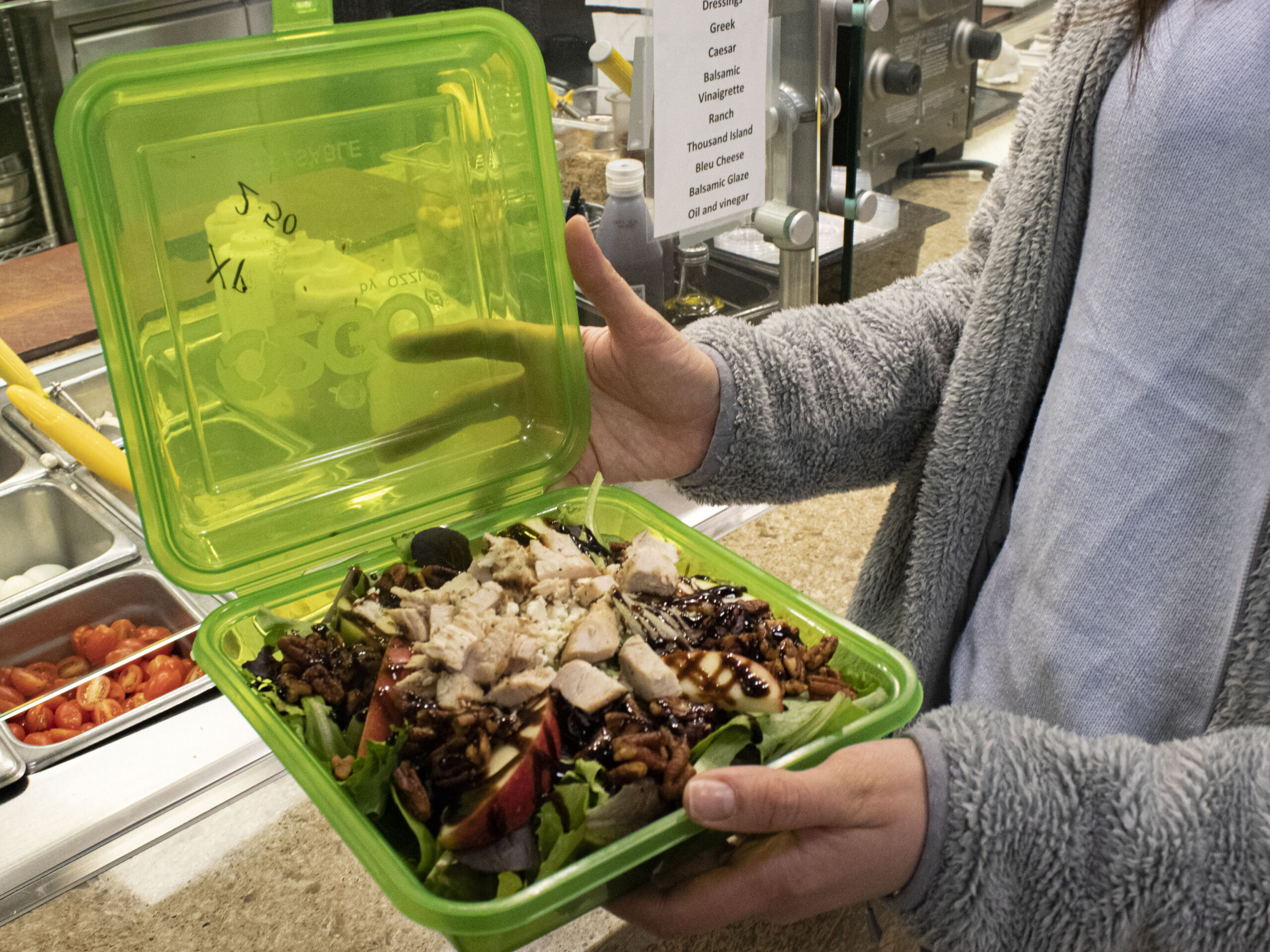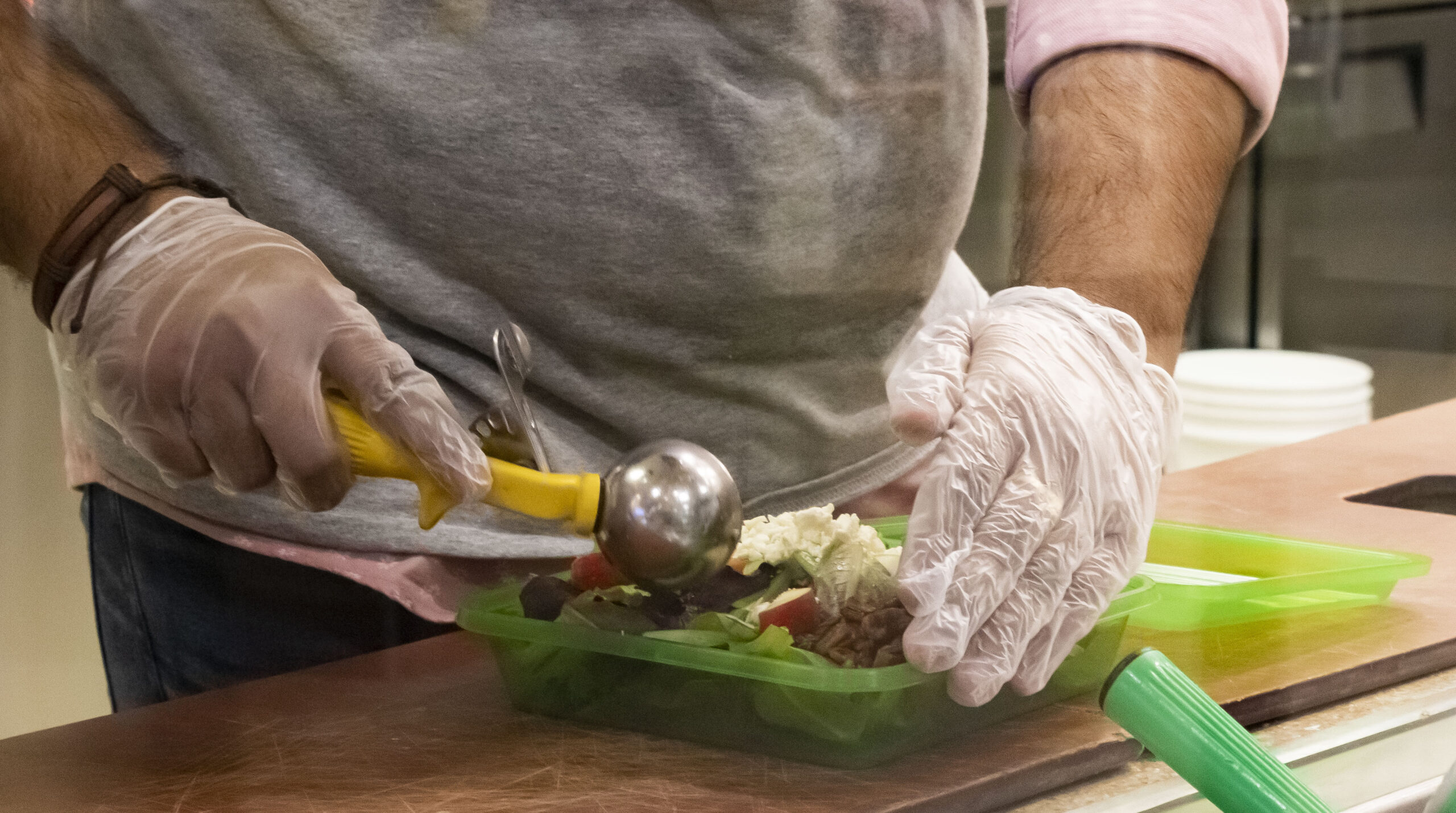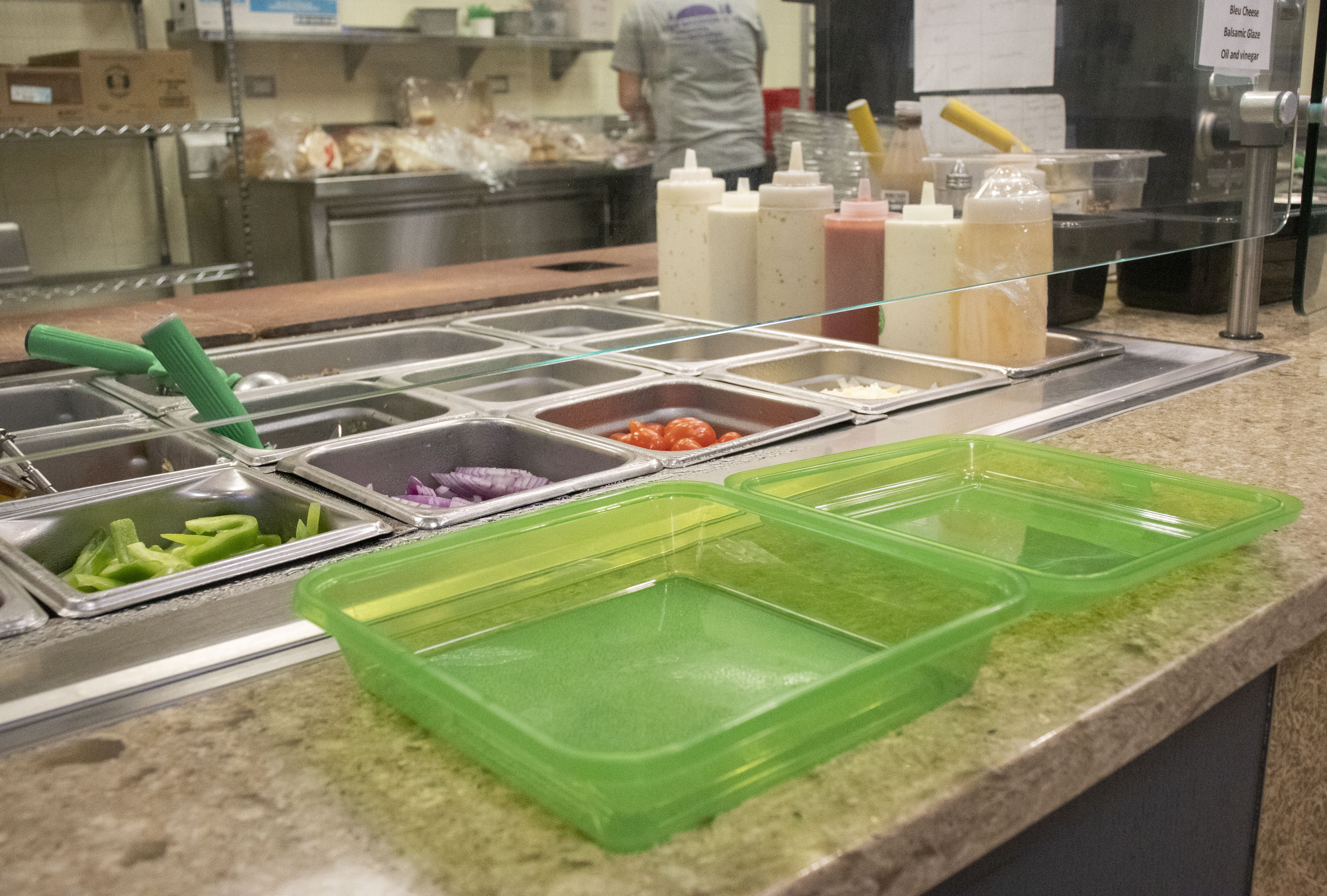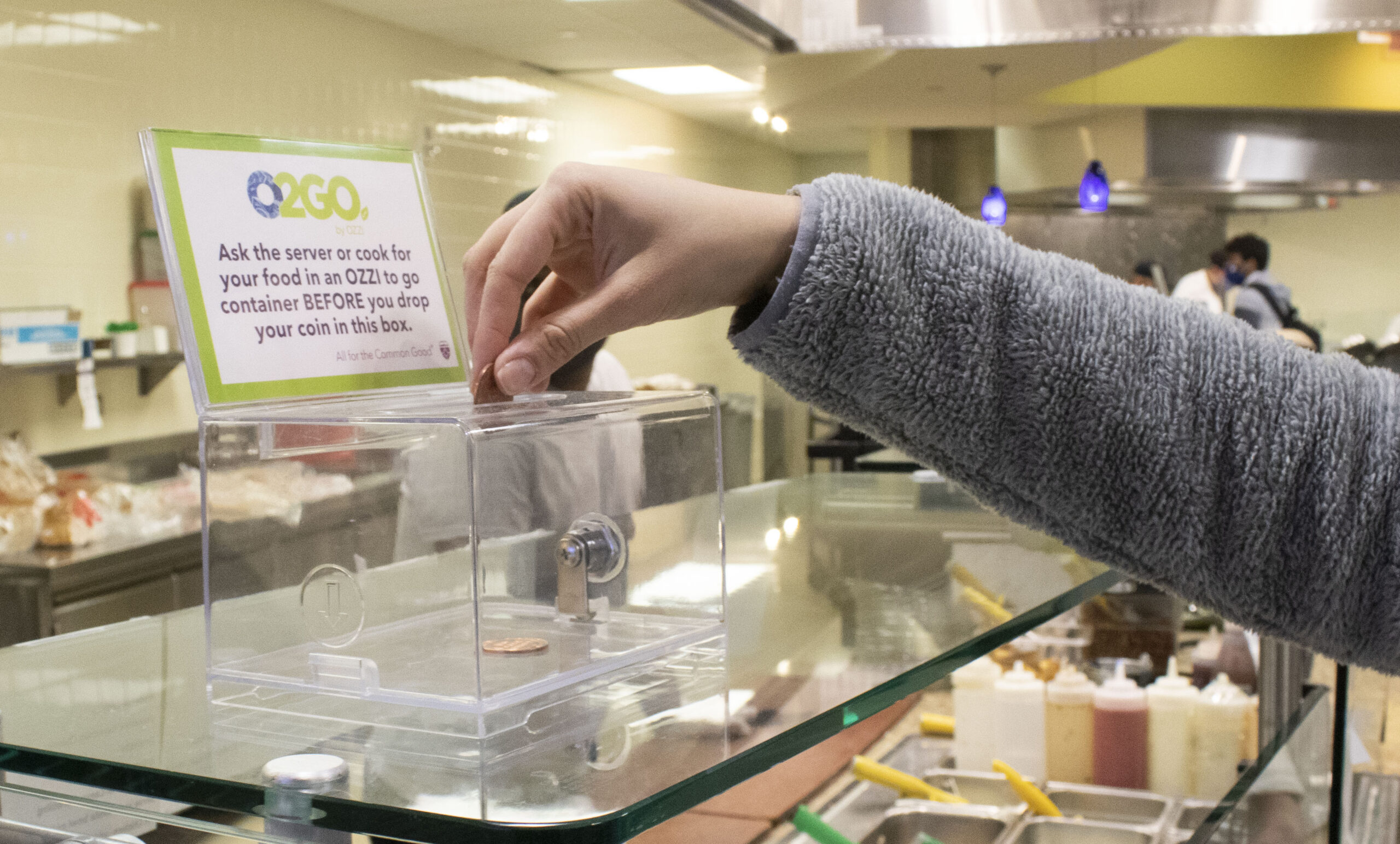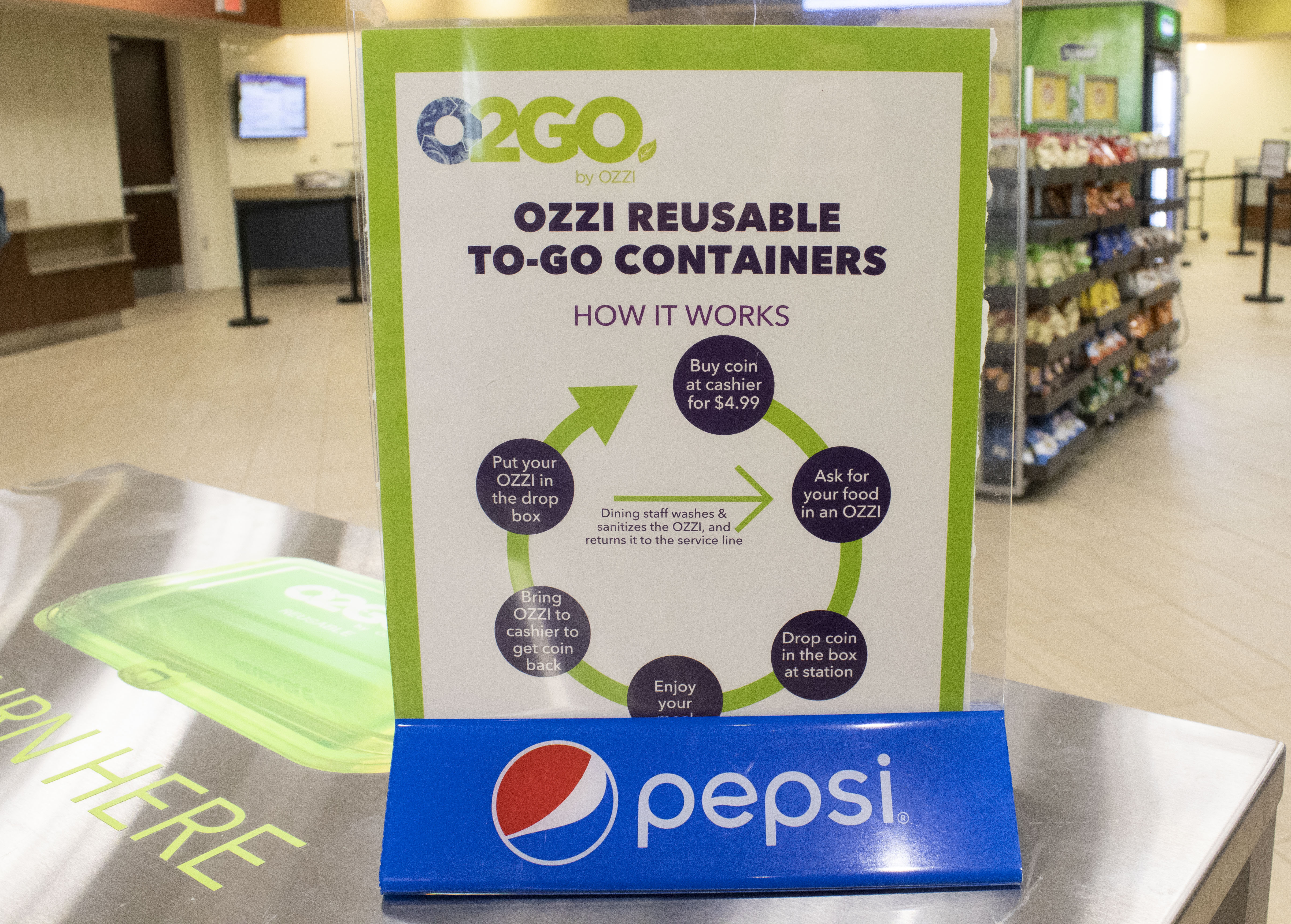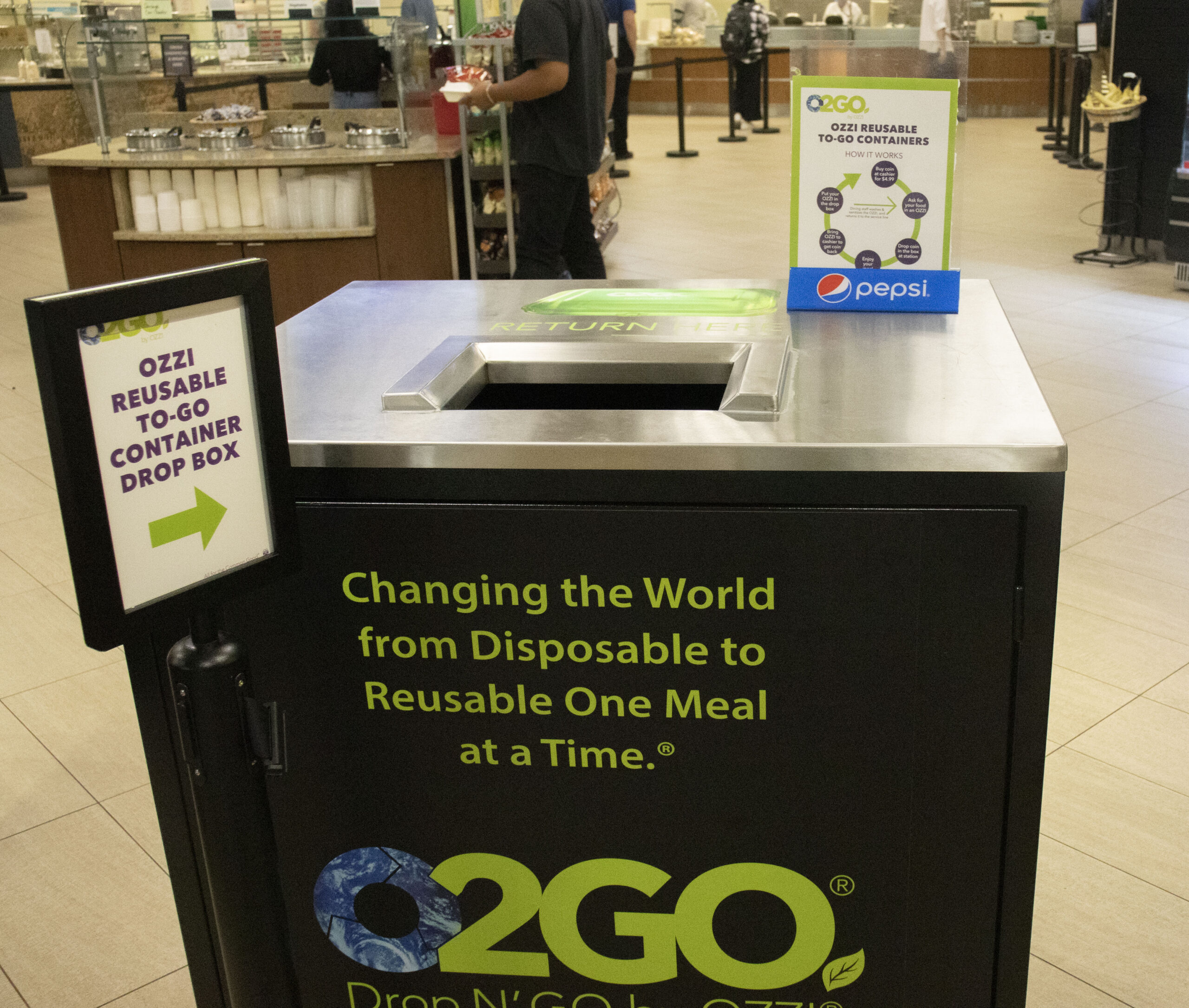St. Thomas Dining Services introduced a new approach to creating a sustainable environment on campus with the OZZI reusable take-out system.
OZZI is a sustainable container brand that designed a take-out system that is environmentally conscious, user friendly, and 100% effective in the elimination of disposable products generated from food service options.
In past years, St Thomas has used plastic to-go containers, which are not only non-sustainable, but also cost a lot to supply.
This year, St Thomas has teamed up with OZZI to create an easier and more effective system to handle their to-go option. You can either choose between a cardboard version, or pay a little extra for unlimited accessibility of the OZZI tupperware.
The OZZI containers are normally found in university dining centers, health-care areas, restaurants, hotels, food courts, and other areas.
To use an OZZI container, students pay $5.01 with tax, for a ‘coin,’ which looks like a golden token.
After dropping their coin in a box at a station, they are able to get their food boxed in an OZZI container where students are then able to take it home.
Once you are finished using your OZZI, you then bring it back in where you are able to dispose of it in the OZZI drop box and get your coin back for numerous more uses.
After you dispose of the OZZI in the drop box, dining services then cleans the boxes for the next day.
“I really like that you only have to pay once for an unlimited amount of uses. Not only does it feel very efficient, but I don’t have to feel the responsibility of having my own plastic containers stacking up my cupboards,” sophomore Lindsey Schultz said.
This year, St. Thomas has tried to evolve their take-out dining system, and students are noticing it.
“This is one of the places that St. Thomas can be more sustainable,” sophomore Shea O’Brien said. “During COVID-19, they were offering to-go boxes, but they did not have any other plan so there would just be an excess of resources.”
The university is working with a goal to eliminate trays in-residence dining locations, which could also save thousands of gallons of water per year just by not having to drastically wash them, according to ABC News.
This process is not only time-efficient for students but also helpful for those who look to be more sustainable.
“When I see other students using it, I feel obligated to use it as well,” Schultz said.
Annabelle Wiskus can be reached at wisk9881@stthomas.edu.

